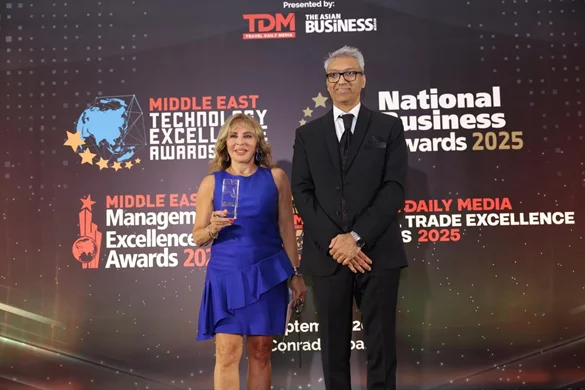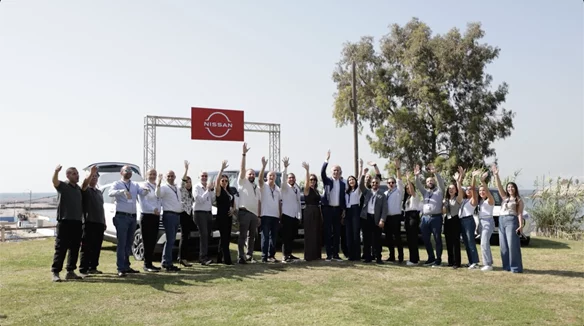Microsoft extended its support to the Lebanese Red Cross (LRC) through the provision of Microsoft Azure to assist in the LRC's digital transformation to cover most of its internal support functions and beneficiary facing applications. This project came to life as the Red Cross continues to transform and face multiple challenges, including a stagnant economy, rising costs, donor fatigue, and an increase in the demand.
Microsoft began its partnership with the LRC in 2011, and the National Society has since benefitted from several software grants, as well as support for its NetHope Donation Project for Syrian response. Most recently, Microsoft has donated its cloud services to enable the LRC to take the next steps in innovation to realize its mission over the next three years. The LRC intends to use Azure to host applications that its field and administrative teams use, including computer-aided dispatch; management of volunteers, equipment, fleet, administration and finances; and the implementation of GIS-based platforms for disaster management, analytics and operations improvement. Hoda Younan, Country Manager of Microsoft Lebanon, stated, "Microsoft Azure will provide a stable, consistent and familiar environment that helps protect the LRC's business-critical applications. Azure can manage cloud backups and Disaster Recovery solutions. The donation that has been provided to the LRC by Microsoft through NetHope program in April 2016 has greatly benefitted the disaster management and prehospital emergency care services in Lebanon."
Azure enables secure collaboration and data sharing, which is essential for the LRC's network of around 8,000 volunteers, who are located across Lebanon and provide a wide range of services to a diverse community, often in challenging situations. In addition, moving its existing CRM to Azure will help the LRC increase volunteer and employee productivity, by monitoring stock and food distribution in real time. Microsoft Azure helps the LRC improve productivity and save money. The LRC believes that Azure can be the future of humanitarian action, by harnessing systems and information to increase productivity, and make data-driven decisions.
Georges Kettaneh, the Secretary- General of the LRC commented, "After the Waked family lost their loved one due to the Red Cross ambulance driver getting lost en-route, the family decided to use technology to ensure the tragedy wouldn't happen again. They led the development of a smartphone application to help the LRC quickly and accurately locate people in need. This highlights technology's role in enhancing the performance of the LRC, and also allow for faster operations and easier execution. Consequently, we can be more efficient in serving the community, and there is more scope to expand applications to scale and reach more beneficiaries. This is why we decided to adopt Microsoft Azure."
One of the main purposes of the LRC in adopting Azure is to help Syrian refugees. Beneficiaries are selected after an assessment that identifies the needs of the Syrian refugees and vulnerable host communities in each target area. The Microsoft Dynamics system that was developed with a portal based on Microsoft SharePoint was used to collect lists of the target groups and facilitate the cross-checking with the UNHCR database before each distribution. The tracking and management of the disaster management activities are done through an application built on top of this Dynamics CRM platform. In addition, the LRC has built a computer-aided dispatch module based on Dynamics CRM. This module provides a facility for dispatchers to enter, classify and track mission progress. In 2016, the LRC provided ambulance service for 23,720 Syrian refugees.
Technology plays an integral part in supporting the LRC mission and meeting reporting requirements for funders and regulators. It also plays an important role in expanding the organization's potential to offer the best services possible by allowing employees and volunteers to shift focus away from administrative tasks. The LRC is leading the way to the future of humanitarian action to be role models for other non-profit organizations to adopt the technology.
Beiruting News
Other news
-
 HighTech
HighTechNissan debuts Klipsch Premium Audio System on iconic Patrol in the Middle East
18 february 2026 -
 HighTech
HighTechRYMCO Welcomes the Arrival of Nissan e-POWER: A New Era of Electrified Driving in Lebanon
16 january 2026 -
 HighTech
HighTechAlfa’s End-of-Year Greetings Campaign: All Lebanon Needs Is Our Love
22 december 2025 -
 HighTech
HighTechCelebrating its first anniversary, the all-new Patrol cements itself as an icon, with over 50 percent sales growth in H1 FY25
17 december 2025 -
 HighTech
HighTechNissan Debuts Adaptive Air Suspension on all-new Patrol in the Middle East for a More Advanced and Confident Drive
03 december 2025 -
 HighTech
HighTechNow in Beirut: The Iconic FIAT 500 Goes Electric at the e-Motorshow
18 november 2025 -
 HighTech
HighTechZeekr Redefines Intelligent Luxury with Middle East 7X Debut
11 november 2025 -
 HighTech
HighTechNissan strengthens commitment to customer excellence in the Middle East through Workforce Innovation
28 october 2025 -
 HighTech
HighTechOMT GROUP AND COMPARE360.COM ANNOUNCE STRATEGIC PARTNERSHIP TO EXPAND ACCESS TO ONLINE INSURANCE IN LEBANON
21 october 2025 -
 HighTech
HighTechLG AND SEALCO's 15-YEAR PARTNERSHIP: A MEDIA CELEBRATION TO RENEW COMMITMENT
30 september 2025 -
 HighTech
HighTechNissan strengthens SUV dominance in the Middle East with expanded line up
29 september 2025 -
 HighTech
HighTechWink Neo Earns an award as Best Digital Bank in Lebanon at the Middle East National Business Awards 2025
24 september 2025 -
 HighTech
HighTechAudi Lebanon Showcases Latest e-tron Models in Exclusive BeitMisk Experience
10 september 2025 -
 HighTech
HighTechUnique Honeycomb design defines Nissan’s All-New Magnite in the Middle East
22 july 2025 -
 HighTech
HighTechYour Next Adventure Begins with RYMCO’s New Nissan Lineup!
16 june 2025 -
 HighTech
HighTechRYMCO Hosts Successful Fleet Event Showcasing Nissan’s Dynamic Lineup
30 may 2025 -
 HighTech
HighTechThe All-New Nissan Magnite on Its Way to Lebanon
23 april 2025 -
 HighTech
HighTechImpex Lebanon Launches the First-Ever Chevrolet Traverse Z71 and the new Tahoe: Ushering in a New Era of Adventure
16 april 2025 -
 HighTech
HighTechImpex launches the 2025 Cadillac Escalade in Lebanon
11 april 2025 -
 HighTech
HighTechRYMCO, the official dealer of Nissan in Lebanon, proudly presents the all-new 2025 Nissan KICKS in Lebanon
17 march 2025





